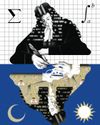
In January, AI Jazeera English aired a segment with a sound analyst named Lawrence Abu Hamdan. He was asked to assess a video that had gone viral online. In the clip, a woman wearing a hijab claimed to be a nurse at a hospital in Gaza. She said that Hamas was attacking the hospital and ransacking its supplies. The sound of bombs could be heard in the background.
In the AI Jazeera segment, Abu Hamdan explains how he knows the video is bunk: "The way that those explosions resounded were not consistent with the way her voice was resounding in that room and resonating." He determined that the sound of the explosions had been added on to the video after the fact.
Abu Hamdan goes on to tell the host that governments are often "complacent when it comes to sound," even though sound analysis is sometimes the only tool that can be used to verify a contested act. There are truths that can be heard but not seen. He also cautions that it takes much longer to prove the falsity of a video than it does for such a video to be created. He is alarmed but not an alarmist; he noticeably does not resort to using jargon like "fake news." "
Many people online had already assumed that the video was fake. Watching the so-called nurse, they had a sense. Why was she brandishing her stethoscope like that? Why didn't she pan the camera around to show us her surroundings? What did she not want us to see? The effort of analyzing this video, a piece of artless misinformation, was beneath Abu Hamdan, who has dedicated himself to unveiling the violence of the world through the medium of sound.
Esta historia es de la edición July 22, 2024 de The New Yorker.
Comience su prueba gratuita de Magzter GOLD de 7 días para acceder a miles de historias premium seleccionadas y a más de 9,000 revistas y periódicos.
Ya eres suscriptor ? Conectar
Esta historia es de la edición July 22, 2024 de The New Yorker.
Comience su prueba gratuita de Magzter GOLD de 7 días para acceder a miles de historias premium seleccionadas y a más de 9,000 revistas y periódicos.
Ya eres suscriptor? Conectar

MEAN TIME
“Hard Truths.”

ENLIGHTEN ME
The secret beauty of mandalas.

THE BEST OF THEM
His was a genius for the ages. Will Gottfried Leibniz ever get his due?

DEATH CULT
Yukio Mishima’ tortured obsessions were his making—and his unmaking.

Prophecy
The night of Dev’s twenty-second birthday, he was invited to sit with the elders after dinner.

A TALE OF TWO DISTRICTS
Lauren Boebert and Colorado’s red-blue divide.

THE TIKTOK TRAIL
Andean migrants draw others to the U.S. with videos depicting themselves as living the American Dream.

LOVE AND THEFT
Did a best-selling romantasy novelist steal another writer's story?

OUR NEW TWO-FACTOR AUTHENTICATION SYSTEM
Our two-factor authentication system is expanding because text messages and e-mailed codes are becoming less secure. Also, we’re committed to making sure your log-in process is more of a hassle than it needs to be.

STILL PROCESSING
Why is the American diet so deadly?
